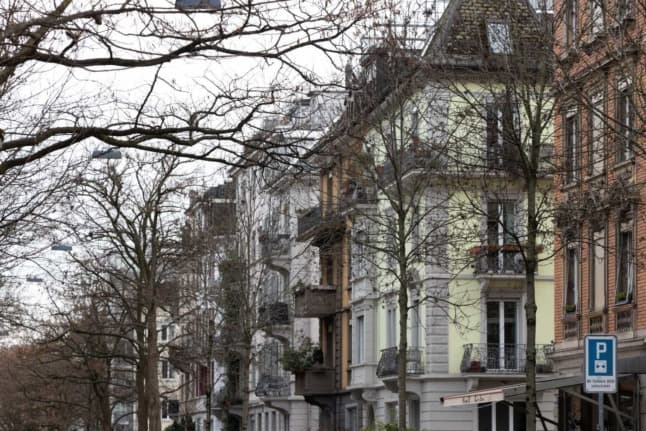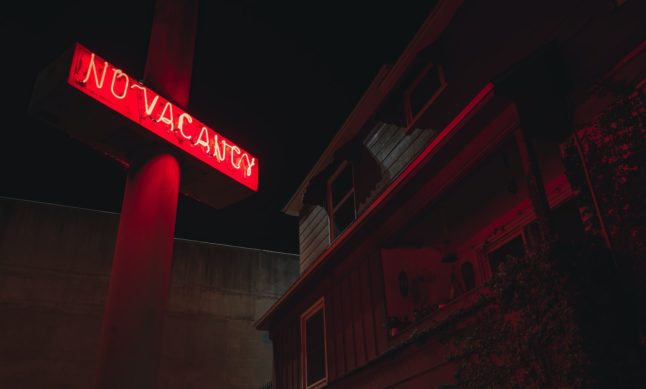Why the housing shortage in German-speaking parts of Switzerland is getting worse

Switzerland has been facing housing woes for a while, with the Geneva area most affected by shortages. But the problem is now shifting from French to German-speaking regions of the country.
Looking to move? Find your next rental apartment here.
Generally speaking, nearly all major Swiss cities and urban centres have been experiencing shortages on the housing market, which have led to higher rents.
Typically, however, the situation has been most dire in the Geneva area, due to its geography and demographics.
The canton is nestled in the southwest corner of the country, where it is wedged between France and Lake Geneva. The land for new constructions is limited, while the demand is growing steadily.
From the demographics point of view, while Geneva’s population has grown by leaps and bounds in the past decade, not enough housing has been built to accommodate the new residents.
READ MORE: Why is Geneva’s rent the highest in Switzerland?
In the Swiss-German part of Switzerland, the housing situation has been tense in Zurich, due primarily to the lack of affordable housing in one of the world’s most expensive cities.
READ MORE: How Zurich’s housing shortage sparked massive rioting
Mostly, however, the situation has not been as bad in German-speaking regions — until now. But the low-availability, high-rent phenomenon is now spreading far and wide.
According to a new Credit Suisse study, pressure on rents is shifting to German-speaking Switzerland.
“In most German-speaking regions, vacancy rates have fallen,” said Sara Carnazzi Weber, the bank’s economist.
What changed?
Two factors are to blame.
One is low construction activity in the German part of Switzerland, and not only in Zurich.
“Six regions of central Switzerland, and the cantons of Glarus and Graubünden, are now reaching historic lows” in terms of vacancies, according to Carnazzi Weber.

The 'no vacancy' trend is spreading across the country. Photo by Mike Cox on Unsplash
That, in turn, should “increase pressure on rental prices", Carnazzi Weber added.
Another reason is high immigration.
“The [housing ] situation is all the more complicated for the German-speaking cantons as they face heavy immigration from Germany," Credit Suisse reveals. “This surge has resulted in lower vacancy rates."
The trend in the French-speaking cantons, on the other hand, is different: many Portuguese nationals, who typically live in Swiss-French regions, are returning to their country of origin, "which lowers the demand for housing,” said Carnazzi Weber.
What’s ahead?
The upward trend will likely continue.
In the short term, the French-speaking cantons will be spared from shortage and a significant increase in rents.
In the long term, however, the outlook is not very encouraging, Carnazzi Weber pointed out.
For this year, the upward pressure on rents will increase by an average of 3 percent.
"But that's not all. Tenants whose homes are heated with fossil fuels should expect a surge in charges, to which will be added significant increases in electricity in certain municipalities."
Comments
See Also
Generally speaking, nearly all major Swiss cities and urban centres have been experiencing shortages on the housing market, which have led to higher rents.
Typically, however, the situation has been most dire in the Geneva area, due to its geography and demographics.
The canton is nestled in the southwest corner of the country, where it is wedged between France and Lake Geneva. The land for new constructions is limited, while the demand is growing steadily.
From the demographics point of view, while Geneva’s population has grown by leaps and bounds in the past decade, not enough housing has been built to accommodate the new residents.
READ MORE: Why is Geneva’s rent the highest in Switzerland?
In the Swiss-German part of Switzerland, the housing situation has been tense in Zurich, due primarily to the lack of affordable housing in one of the world’s most expensive cities.
READ MORE: How Zurich’s housing shortage sparked massive rioting
Mostly, however, the situation has not been as bad in German-speaking regions — until now. But the low-availability, high-rent phenomenon is now spreading far and wide.
According to a new Credit Suisse study, pressure on rents is shifting to German-speaking Switzerland.
“In most German-speaking regions, vacancy rates have fallen,” said Sara Carnazzi Weber, the bank’s economist.
What changed?
Two factors are to blame.
One is low construction activity in the German part of Switzerland, and not only in Zurich.
“Six regions of central Switzerland, and the cantons of Glarus and Graubünden, are now reaching historic lows” in terms of vacancies, according to Carnazzi Weber.

That, in turn, should “increase pressure on rental prices", Carnazzi Weber added.
Another reason is high immigration.
“The [housing ] situation is all the more complicated for the German-speaking cantons as they face heavy immigration from Germany," Credit Suisse reveals. “This surge has resulted in lower vacancy rates."
The trend in the French-speaking cantons, on the other hand, is different: many Portuguese nationals, who typically live in Swiss-French regions, are returning to their country of origin, "which lowers the demand for housing,” said Carnazzi Weber.
What’s ahead?
The upward trend will likely continue.
In the short term, the French-speaking cantons will be spared from shortage and a significant increase in rents.
In the long term, however, the outlook is not very encouraging, Carnazzi Weber pointed out.
For this year, the upward pressure on rents will increase by an average of 3 percent.
"But that's not all. Tenants whose homes are heated with fossil fuels should expect a surge in charges, to which will be added significant increases in electricity in certain municipalities."
Join the conversation in our comments section below. Share your own views and experience and if you have a question or suggestion for our journalists then email us at [email protected].
Please keep comments civil, constructive and on topic – and make sure to read our terms of use before getting involved.
Please log in here to leave a comment.